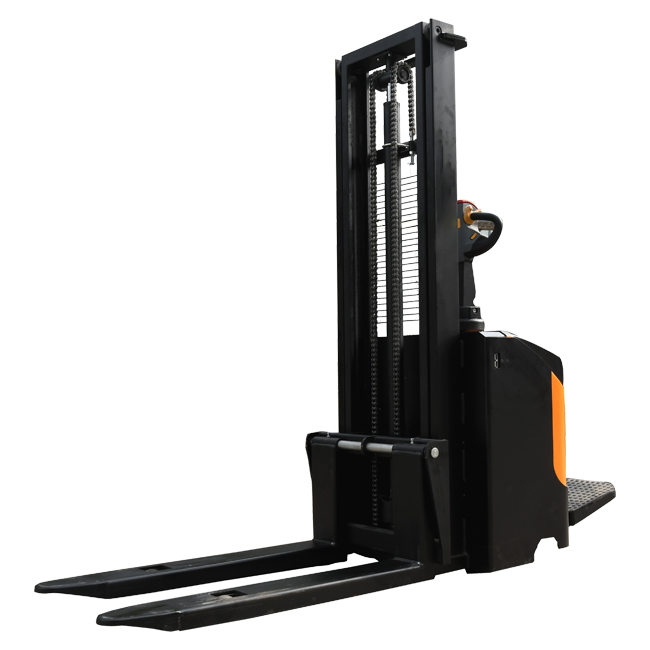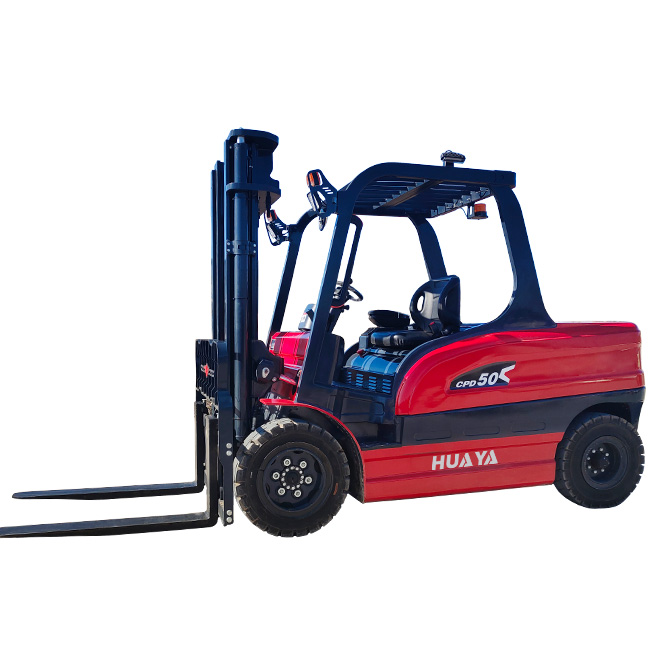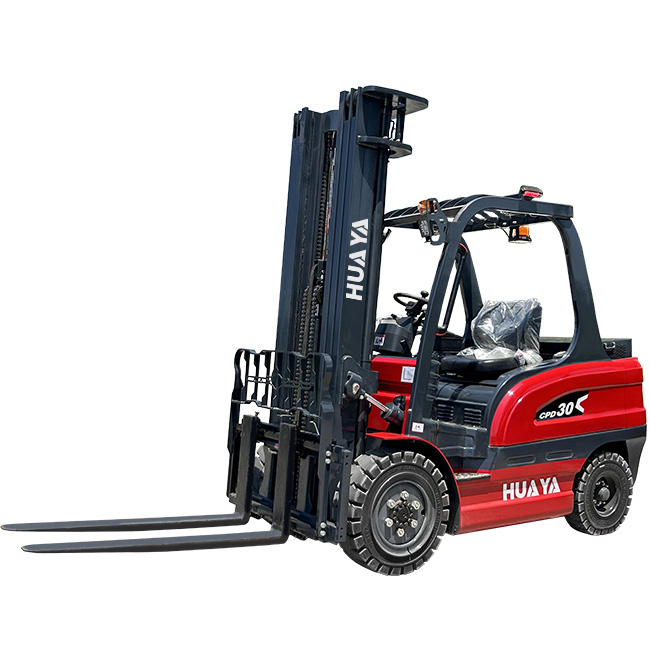Do you need a driver’s license to drive an electric pallet jack?
05 Sep 2025
What is an electric pallet jack?
An electric pallet jack, sometimes called a “walkie” or “powered pallet truck,” is a piece of material-handling equipment designed to lift and move pallets with ease. Unlike a forklift, it’s smaller, lower to the ground, and doesn’t have a tall mast for stacking pallets high. It’s powered by a rechargeable battery, making it easier to use in large warehouses.
Why they’re popular in warehouses and retail
These machines are popular in retail stores, grocery chains, and distribution centers because they save time and reduce strain on workers. Imagine moving a 2,000-pound pallet by hand—that’s nearly impossible. But with an electric pallet jack, you can glide it across the warehouse floor almost effortlessly.
Difference Between Pallet Jacks and Forklifts
How forklifts require operator licensing
Forklifts are bigger, stronger, and riskier to operate. Because they lift loads several feet into the air, forklift operators must be licensed and trained under OSHA regulations in the U.S. This licensing ensures safety in the workplace.
Why pallet jacks are often treated differently
Electric pallet jacks, on the other hand, don’t lift pallets high—just enough to move them. That’s why they’re not classified in the same category as forklifts. In most cases, you don’t need a state-issued driver’s license to operate them, but you may still need workplace training or certification.
Do You Need a Driver’s License?
Legal perspective in most regions
No, you generally do not need a standard driver’s license (like a car license) to operate an electric pallet jack. These machines are used indoors and on private property, not public roads.
Workplace safety requirements instead of a driver’s license
Instead of a driver’s license, employers require safety training programs for anyone operating powered industrial trucks, which include pallet jacks.
OSHA and Other Safety Regulations
OSHA training requirements in the U.S.
In the United States, OSHA (Occupational Safety and Health Administration) requires training for anyone using powered pallet jacks. Workers must show they know how to use the machine safely before being allowed to operate one.
Employer responsibility for certification
It’s not about getting a driver’s license from the DMV—it’s about employers ensuring workers are properly trained. If an accident happens and OSHA finds out there was no training, the employer could face heavy fines.
Types of Licenses and Certifications
Forklift license vs. pallet jack certification
While forklifts require a formal “forklift license” provided by certified trainers, pallet jacks usually require in-house certification given by the employer.
Differences between a driver’s license and equipment certification
A driver’s license lets you drive on public roads, while equipment certification is job-specific and only valid for that workplace or company.
Who Can Operate an Electric Pallet Jack?
Minimum age requirements
According to OSHA, workers must be at least 18 years old to operate powered industrial equipment like electric pallet jacks.
Employee training standards
Before using one, workers must receive training that covers safe driving, load handling, and emergency procedures.
Common Training Topics for Operators
Safe operating procedures
Operators learn how to start, stop, and steer safely, as well as how to navigate tight warehouse spaces without colliding with racks or shelves.
Handling loads and maneuvering safely
Training also covers how to properly balance pallets to prevent tipping or dropping products.
Why Training is More Important Than a Driver’s License
Preventing accidents and injuries
Most pallet jack accidents happen because someone didn’t know how to use the equipment properly. Training can prevent foot injuries, collisions, and dropped loads.
Reducing product damage in warehouses
Imagine crashing a 2,000-pound pallet of soda into a wall. That’s a lot of sticky cleanup. Proper training reduces product damage.
Insurance and Liability Considerations
Employer liability if an untrained worker causes damage
If an untrained worker causes damage, the company, not the worker, is usually held liable. That’s why businesses don’t take shortcuts on certification.
How proper training affects insurance coverage
Insurance companies may refuse to cover damages if the operator wasn’t trained, making training programs essential for businesses.
Workplace Scenarios Where Certification is Needed
Large warehouses and distribution centers
Big companies like Amazon, Walmart, and Target require all operators to go through certification before touching equipment.
Smaller retail stores and grocery chains
Even in smaller stores, managers often provide a short in-house certification program to keep workers safe.
International Regulations
EU requirements for pallet jack operators
In the European Union, rules vary by country, but most require formal workplace training similar to OSHA.
Differences in Asia and Canada
In Canada, regulations are also strict, while in some Asian countries, rules may be more relaxed—but global companies usually stick to OSHA-like standards for safety.
Electric vs. Manual Pallet Jacks
Why manual pallet jacks don’t require certification
Manual pallet jacks are like big hand carts—you push them manually, so no license or certification is required.
How electric pallet jacks introduce new risks
Because they’re powered, electric pallet jacks can go faster and cause accidents, so training becomes necessary.
Common Mistakes Operators Make Without Training
Overloading pallets
Loading too much weight can damage equipment and cause safety hazards. Training helps workers know the limits.
Unsafe driving practices
Speeding, sharp turns, and ignoring pedestrians are common mistakes that lead to accidents.
Employer Best Practices
Providing proper certification programs
Employers should give both classroom-style instruction and hands-on training.
Refreshing training regularly
OSHA requires retraining every three years or after an accident to keep workers sharp.
The Future of Warehouse Safety Regulations
Growth of automation and safety sensors
With the rise of automated pallet jacks and robots, future regulations may shift toward monitoring technology instead of human-only training.
Possible stricter rules in the coming years
As workplaces become busier, we may see stricter global rules requiring more advanced certification even for simple equipment.
So, do you need a driver’s license to drive an electric pallet jack? The answer is no—you don’t need a car license, but you do need proper workplace training and certification. OSHA, employers, and insurance companies all emphasize training because safety matters more than paperwork. If you’re thinking of operating one at work, just remember: training keeps you safe, your coworkers safe, and the products intact.
FAQ
1. Do you need a driver’s license to drive an electric pallet jack at Walmart?
No, but you must complete Walmart’s in-house training program.
2. Can teenagers operate pallet jacks at work?
No, OSHA requires operators to be at least 18 years old.
3. Is certification for pallet jacks expensive?
Usually not—employers often provide training for free as part of onboarding.
4. How long does pallet jack training take?
It can be as short as a few hours, including hands-on practice.
5. Can you use an electric pallet jack outdoors?
Yes, but only on smooth surfaces. They’re not designed for rough terrain like forklifts.




